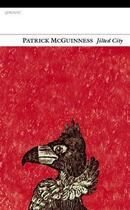-
Nombre de pages : (-)
-
Collection :
(-)
-
Genre :
(-)
-
Thème :
Non attribué
-
Prix littéraire(s) :
(-)
Résumé:
Poetry and Radical Politics in fin de siècle France explores the relations between poetry and politics in France in the last decade of the 19th century. The period covers perhaps the most important developments in modern French poetry: from the post-Commune climate that spawned the 'decadent'... Voir plus
Poetry and Radical Politics in fin de siècle France explores the relations between poetry and politics in France in the last decade of the 19th century. The period covers perhaps the most important developments in modern French poetry: from the post-Commune climate that spawned the 'decadent' movement, through to the (allegedly) ivory-towered aestheticism of Mallarmé and the Symbolists. In terms of French politics, history and culture, the period was no less dramatic with the legacy of the Commune, the political and financial instability that followed, the anarchist campaigns, the Dreyfus affair, and the growth of 'Action française'.
Patrick McGuinness argues that the anarchist politics of many Symbolist poets is a reaction to their own isolation, and to poetry's anxious relations with the public: too 'difficult' be be widely read, Symbolist poets react to the loss of poetry's centrality among the arts by delegating their radicalism to prose: they can call, in prose, for the overthrow of the state and support anarchist bombers, while at the same time writing poems about dribbling fountains and dazzling sunsets for each other.
This study demonstrates the connections between the anti-Symbolist reaction of the école romane of 1891 (in which Charles Maurras first made his name), and the far-right cultural politics of Action française in the early 20th century. It also redefines many of the debates about late 19th-century French poetry by putting an argument forward for the political engagement(s) of the Symbolists while the French 'intellectuel' as a national icon was being forged. McGuinness insists on profound continuities between the end of the 19th century and the beginning of the 20th in terms of cultural politics, literary debate, and poetic theory, and shows how politics is to be found in unexpected ways in the least political-seeming literature of the period.
The famous line by Péguy, that everything begins in mysticism and ends in politics, has an appealing sweep and grace. This book has its own more modest and specific version of a similar journey: it begins in Mallarmé and ends in Maurras.
Donner votre avis















